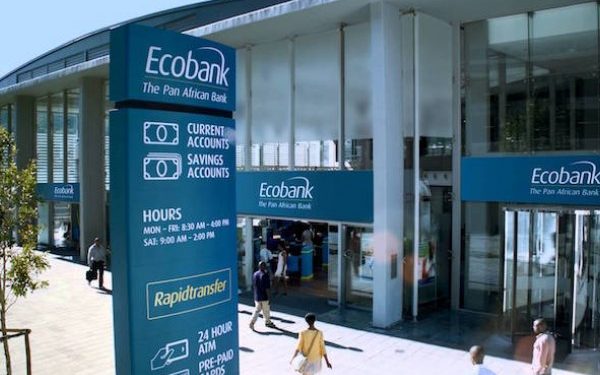The share price of Ecobank Transnational Incorporation appreciated by more than 20% in the last seven trading sessions, data from the local exchange reviewed by MarketForces Africa showed.
As of Friday’s close, the market priced ETI N25.10 as equities investors in the Nigerian bourse experienced a good start to the year with about N2.7 trillion weekly gain.
According to Marketforces Africa report, there is no recent event except the fact that the Nigerian banking sector is undergoing market re-rating. Largely, positive sentiment on the Pan African lender’s earnings expectation provides an anchor that shareholders are lean over.
It’s going to be a good year for shareholders, analysts told MarketForces Africa, citing a combination of strong earnings release expectations and the move to revamp the economy. ETI market capitalisation printed at N460.6 billion, according to data from the Nigerian Exchange.
Late in December, Fitch Ratings affirmed Ecobank Transnational Incorporated’s (ETI) Long-Term Issuer Default Rating (IDR) at ‘B-‘ and Viability Rating (VR) at ‘b-‘ and removed these ratings from Rating Watch Negative– with the outlook accorded as stable.
Fitch said the affirmation reflects ETI’s continuing compliance with group minimum regulatory capital requirements following the devaluation of the Nigerian naira.
This also indicates Fitch’s expectation that, although capital buffers remain thin, would continue to remain compliant in the event of a further material devaluation of the naira. Fitch sees ETI’s refinancing risks concerning large upcoming bank holding company (BHC) principal repayments in 2024 and 2025 receding.
This considers ETI’s maintained capital compliance, after having recently secured significant funding and our expectation that further funding will be secured imminently. The group viability rating considers a leading pan-African franchise, strong revenue and geographical diversification, improved asset quality, healthy operating profitability, and a strong funding and liquidity profile.
These considerations were balanced against the group’s heightened exposure to foreign exchange (FX) risk, modest capital buffers for its risk profile and some funding pressures, albeit manageable after it secured funding to meet upcoming BHC debt repayments.
Operating conditions are negatively influenced by rising sovereign debt sustainability risks across sub-Saharan Africa (SSA), according to the rating note. However, geographical diversification mitigates sovereign risks, including high exposure to sovereigns rated ‘B-‘ and below, Fitch said.
ETI is exposed to the depreciation of SSA currencies through its equity investments in subsidiaries because its reporting currency is US dollars. The depreciation of SSA currencies (in particular the Nigerian naira, Ghanaian cedi and CFA franc) led to large FC translation losses through other comprehensive income in 9M23 that significantly exceeded net income, resulting in a comprehensive loss of USD236 million which was equivalent to 12% of total equity in 2022.
The Pan African lender’s impaired loans ratio increased to 5.6% at the end of Q3-2023 from 5.2% in 2022, which Fitch analysts said they expect to increase further in 2024.
Credit: Marketforces Africa

Call:
Sandra - 07069148333
Pauline - 08174374150
Scholastica - 09060678434













